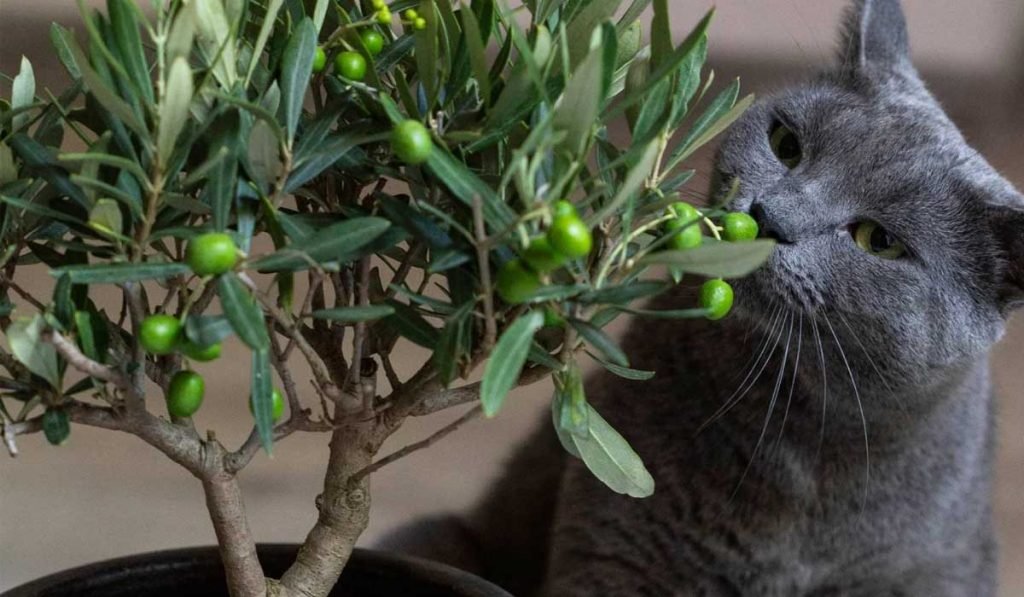Bonsai trees are gentle miniature trees that are trained to keep their small shape. They make a perfect plant companion for every house, but what many of you might be wondering is whether bonsai trees are pet-friendly?
If you have cats and dogs, you always have to be careful with the type of plants you bring in your home, because some of them can be toxic to pets, particularly cats and dogs.
In this post we’ll look at bonsai trees that can be harmful to your four-legged friends as well as bonsais that are pet-safe. As well as that we’ll look at the general symptoms of poisoning in pets and provide you with a guide on what to do if you think your pet has accidentally nibbled on a bonsai tree that’s toxic for it.
Table of Contents
Are Bonsai Trees Toxic to Pets?
Most types of bonsai trees are safe to keep around pets and won’t harm them. Even those trees that can be harmful when eaten won’t pose much threat to your furry friends because pets rarely disturb them, but obviously you don’t want to risk it.
It’s also worth keeping in mind that some types of bonsai that aren’t toxic to people can be harmful for cats or dogs. When in doubt it’s best to always consult with a specialist. If you’re looking at getting a new bonsai, ask the staff at your local bonsai nursery if the particular type of tree you’re looking at is safe for pets.
Which Bonsai Trees are Harmful for Dogs and Cats?
Some bonsai varieties can be highly toxic, or even fatal for dogs. A couple tree types to avoid if you have dogs in your house are Azalea and Sago Palm. With these two even milder symptoms can be fatal to your canine friend.
Other trees that can be potentially harmful to your dog include:
- Japanese Juniper
- Fig
- Ficus
- Buddhist Pine
- Crassula Argenta (Jade)
- Australian Ivy Palm
Most of the trees listed above are also toxic for cats. Other bonsai types that are harmful for your feline friends include:
- Cardboard Palm
- Giant Dracaena
- Fern Palm
- Norfolk Island Palm
- Australian Pine
Some trees can be more toxic to pets than others, but it’s still better to keep them out of your house to prevent any potential harm for your pets.
Pet-Safe Bonsai Trees
If you’re really keen on having a bonsai tree in your home, then you’ll be pleased to hear that there’s plenty of trees that are pet-safe and can be kept in the same space as your pets. As long as you keep your bonsai out of reach from your dogs or cats, there shouldn’t be a threat to your pets.
Some bonsai varieties that are considered pet-friendly and are non-toxic for your four-legged pals include money tree, bamboo palm and peperomia as well as prayer plant.
For cats even the more toxic types might be okay as long as you don’t let your cat nibble on them. With dogs, however, you want to be especially careful and if you know a plant might be even a bit toxic don’t buy it at all.
General Symptoms of Poisoning in Pets and How to Treat it
The most common symptoms of poisoning for both cats and dogs include diarrhoea, vomiting, lethargy, and abnormal swelling in certain areas particularly around the abdomen. For dogs some of the more severe symptoms can include liver failure seizures or even coma. Those, however, are very rare and only happen in extremely serious cases of poisoning.
If you notice your pet experiencing any of the symptoms above, call your local veterinarian immediately. Even if you don’t think the symptoms are that severe it’s better to be safe than sorry.
Less serious cases of poisoning in pets can usually be treated with antibiotics, diet restrictions or a digestive cleanse. Severe cases of poison indigestion will require a more invasive intervention by your vet. Those can include blood infusions or IV lines.
Conclusion
Generally speaking, most bonsai trees can be kept in homes with cats or dogs without causing any harm for your pets. However, you still want to be cautious because some tree species can be toxic to pets.
Always make sure you ask your local bonsai sellers if the plants you’re looking to buy are pet-safe. As well as that try to keep your bonsai trees where your pets can’t reach them. This way you can protect your precious tree from getting damaged by being accidentally knocked over and can also prevent your pet from getting poisoned.
If your pet does accidentally nibble on your bonsai and starts to experience symptoms of poisoning such as vomiting or diarrhoea, call a local vet as soon as possible so he can take appropriate action.
